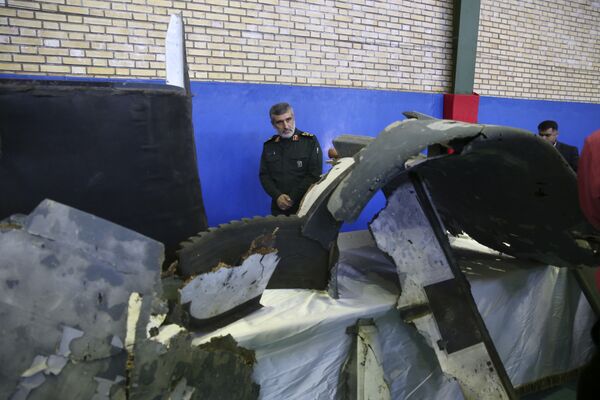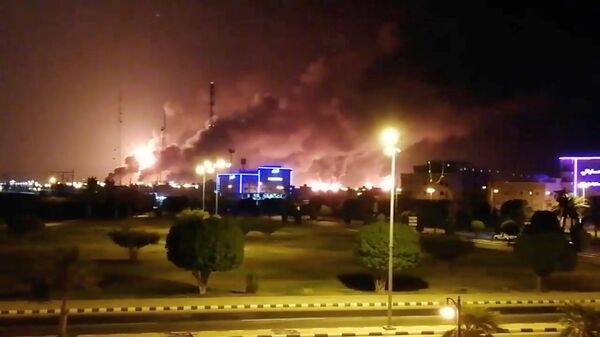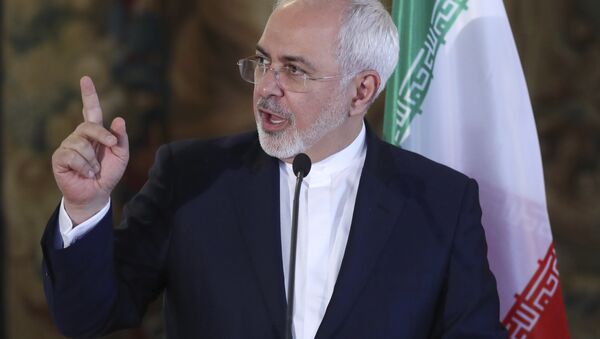Either all Gulf countries enjoy security, "or they will all be deprived of it," Iranian Foreign Minister Mohammad Javad Zarif is quoted as saying on Thursday in an opinion piece in the Kuwaiti Al Rai newspaper.
"Providing regional security is the primary responsibility of all countries in the region, and security must be free from foreign interference. The fate of the people and nations of the Persian Gulf region is intertwined based on religious, cultural, traditional, historical, geographical and family commonalities, and security is not separable, either everyone benefit from it or everyone will be deprived of it, “ said Zarif.
Amid unabated Tehran-Washington tensions and charged rhetoric, Zarif emphasised the Hormuz region is of strategic importance to international trade and the supply of energy to the world.
For centuries, the Foreign Minister said, security and stability have been ensured by regional countries, and this cannot be achieved without cooperation and interaction.
"Providing regional security is the primary responsibility of all countries in the region, and security must be free from foreign interference”, said Zarif.
Tehran’s Hormuz Peace Initiative
Speaking to Majid al-Ali, editor of the Kuwaiti newspaper Al-Rai, and other Arab journalists, Mohammad Javad Zarif emphasised the importance of the "Hormuz Peace Endeavour (HOPE)" presented by President Rouhani in his address to the UN General Assembly."
"The initiative, with the participation of eight affiliated countries, including the Kingdom of Saudi Arabia, the Republic of Oman, the Kingdom of Oman, the United Arab Emirates, the State of Kuwait, the state of Qatar, the Kingdom of Bahrain and the Islamic Republic of Iran, has the necessary and sufficient potential to realize comprehensive security in the region through dialogue," continued Zarif.
The Iranian Foreign Minister stated that President Hassan Rouhani had commissioned him to begin consultations to hear the views of governments and elites in the region and to complete and enhance the "Hormuz Peace Endeavour".
Simmering Gulf Tensions
Tensions between Iran and the United States increased after the US unilaterally withdrew from the 2015 Joint Comprehensive Plan of Action (JCPOA) in May 2018, reimposing sanctions against Tehran.
In response, Iran gradually scaled back its own commitments to the nuclear deal.
This May, Washington dispatched a carrier strike group to the Middle East after citing an unspecified Iranian “threat” to US interests in the region.
Since then, the Persian Gulf has witnessed a succession of dangerous incidents, including tanker sabotage attacks, ship seizures and drone shootdowns, with Tehran and Washington blaming one another for the escalations.

In summer, the US announced the formation of a maritime coalition aimed at protecting commercial vessels moving through the Persian Gulf, the Strait of Hormuz and the Gulf of Oman, with the UK, Australia, the United Arab Emirates, Saudi Arabia and Bahrain joining the initiative, as other major US allies, such as Germany, France, and Japan have declined to join.
Tehran, in turn, proposed the creation of a regional security effort to ensure the safety of local waters.
The standoff between Iran and the US escalated even further in the wake of the drone attacks targeting Saudi Aramco oil facilities on 14 September.

Although Yemen's Houthi movement claimed responsibility for the attacks, a number of countries, including Saudi Arabia itself, the US, the UK and Germany blamed the attack on Tehran.
Washington’s response to the incident involved introducing more anti-Iranian sanctions, which were subsequently condemned by Iranian President Hassan Rohani as acts of “merciless economic terrorism.”




